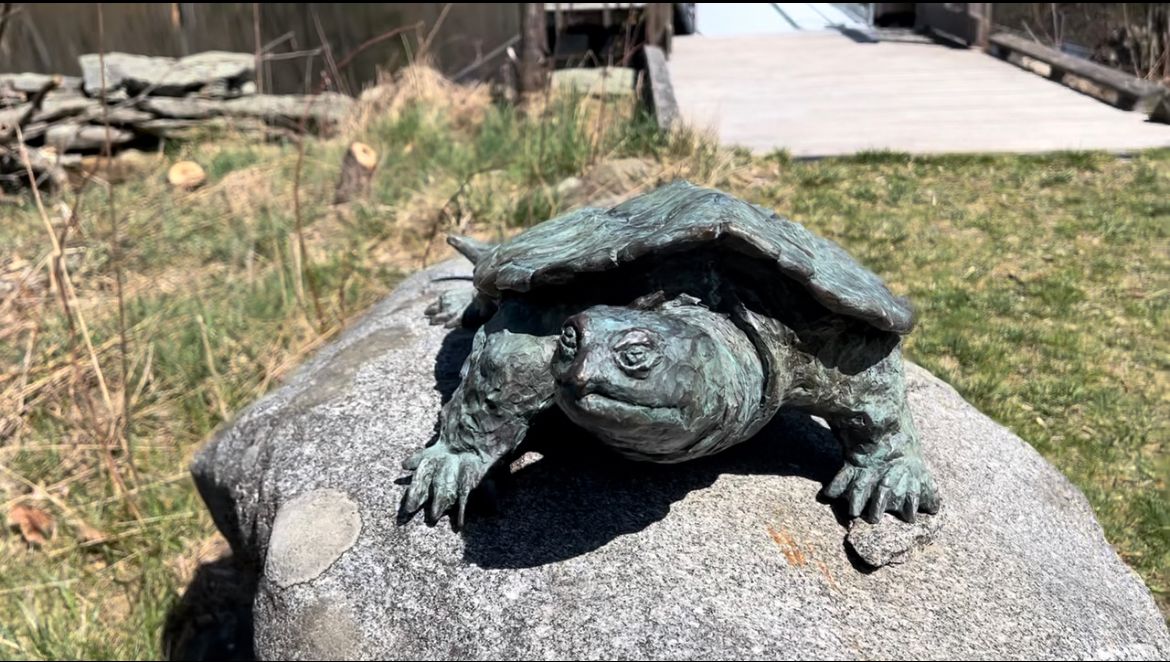PRINCETON, Mass. - Mass Audubon has established a type of trail that is designed to be inclusive of everyone who wants to spend time in nature.
The All Persons Trails offered at 14 Mass Audubon sites broaden accessibility to experience nature in any way one feels comfortable.
“Our All Persons Trails are a space where anyone can come, any age, any ability, any level of comfort in nature and come out here and enjoy our spaces,” said Jenn Madson, regional director for Worcester County at Mass Audubon.
For people with developmental differences, including people with autism, the All Persons Trails provides safety while taking part in experiences that can help engage their senses.
According to Autism Vision of Colorado, a nonprofit that seeks to educate about autism, outdoor play can help individuals with autism get used to new situations and sensations. They also say that individuals with autism who spend time outside can improve skills, such as agility, balance, coordination and motor skills.
According to Mass Audubon, using the All Persons Trails, which are also wheelchair-accessible, is a full-body experience because multiple senses are activated when people use the features at the trail sites. Four prominent senses can be exercised on the trails: sight, sound, touch and smell. Anyone on the trails can experience these senses at their own pace while getting practice at acclimating to a new environment.

There is a three-dimensional sculpture of a snapping turtle located near a pond at Wachusett Meadow Wildlife Sanctuary in Princeton that visitors are encouraged to feel the texture of a turtle's shell.
“They can look to see the habitat that an actual turtle would go and live in right next door at the pond,” Madson said. “So, they really get to have an immersive experience but one they feel comfortable doing.”
The audio recordings that are available either online or on MP3 players at Mass Audubon’s office help guide visitors through the trail, allowing them to be aware of what they could experience at an upcoming feature. The audio tour and maps also provide an understanding of the terrain and how long of a distance someone needs to travel to arrive at the next site.
Staff of Wachusett Meadow said that this can help prepare participants ahead of each feature and lead to a more engaging and fulfilling experience.
Outdoor activity can be an ideal setting for people with developmental differences, said Elizabeth Broughton, education coordinator and camp director at Wachusett Meadow, and that modeling between people who are neurodivergent and neurotypical is one of the biggest benefits of outside interplay.
“Sometimes the systematic approach of an autistic child who runs on routine is helpful for the neurotypical child to see,” Broughton said. “As is the imaginative play that a neurotypical child might present and model for the neurodivergent child, often without even knowing it.”
Safe exposure to activities that provide opportunities for equal experiences is a key outcome, advocates say.
“We have had school trips and field trips where teachers are just so excited that every single one of their students can have the exact same experience and there’s no cutoff point,” Madson said. “There’s no ‘I’m sorry you can’t do this,’ there’s ‘Yes, of course.’”



